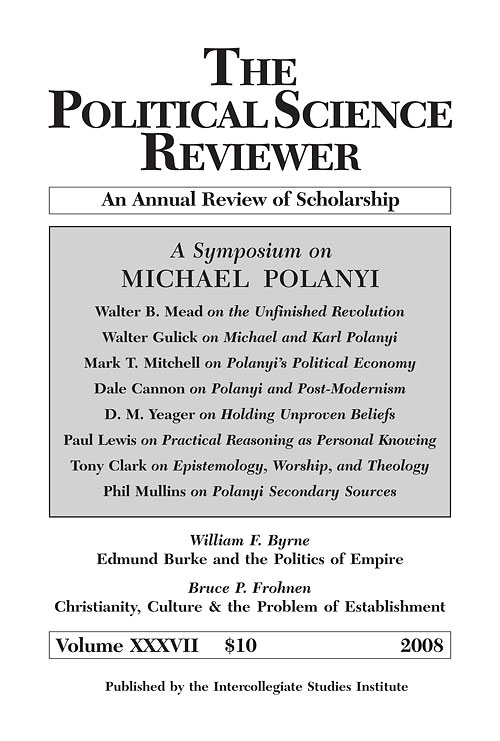Abstract
T. S. Eliot indisputably was, and remains, in the first rank ofpoets of any era and any culture. Eliot is almost as wellknown among literate persons as a critic and literary theorist. Hisjournal, The Criterion, despite its short lifespan, remains thestandard of high modernism. Continuing interest in Eliot isshown in the recent re-issue of Russell Kirk's Eliot and His Age.But Eliot's stature as a critic has suffered due to the sameelements that make his poetry so highly admired—its call tointellectual rigor and demand for active, learned engagement withthe Western tradition and with traditions and civilizations outsidethe West. Thus Eliot's thought has been dismissed as "arrogant""and ""elitist"" even as the products of that thought have beenaccepted as essential elements of our literature.Least regardedin the mainstream of English-speaking letters are Eliot's writingson culture. Championed by a few religious and traditional conservativethinkers, these writings also are mentioned in connectionwith charges of Eliot's anti-Semitism, or more often, simplyignored.But Eliot's writings on culture are important precisely becausethey grow so directly from his literary criticism and becausethey so clearly are of a piece with his conception of the purposeand role of literature itself. In Eliot's view, literature, in additionto its provision of entertainment and personal enrichment, has asits proper end the maintenance and enrichment of culture. Inparticular, Eliot's Christianity and Culture is a substantial contributionto our understanding of the nature of culture, the natureof the relationship between culture and religion, and the role ofwhat often are termed cultural pursuits—including literature, thevisual arts, architecture, and the like—in making life worth living.
